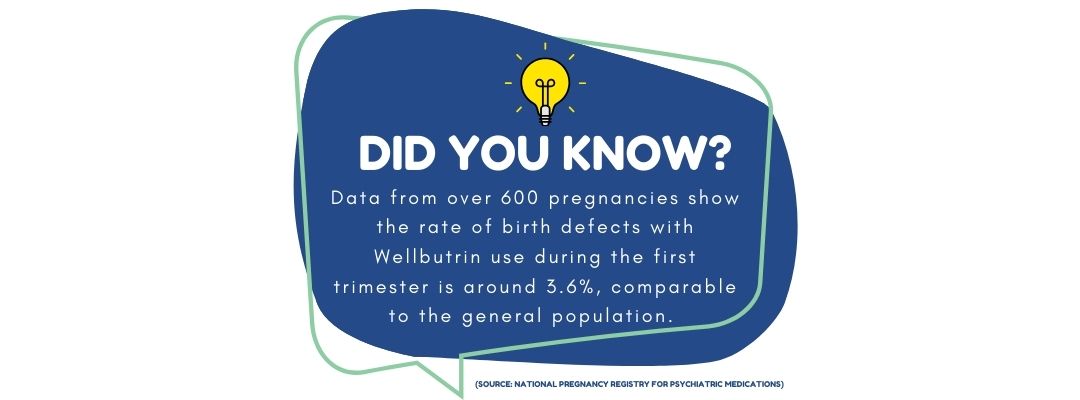Can You Take Wellbutrin While Pregnant? Understanding the Risks and Benefits
Can you take Wellbutrin while pregnant? Pregnancy brings many questions, especially regarding medication use. Many women who are prescribed Wellbutrin may wonder about its safety during this critical time. It is important to know that Wellbutrin can be used during pregnancy, but it should only be done under careful medical supervision.
Understanding the risks and benefits involved is crucial for any expectant mother. Healthcare providers typically weigh these factors before making recommendations. There are alternatives to Wellbutrin that may be considered as well, depending on individual circumstances.
Key Takeaways
- Wellbutrin may be used during pregnancy with medical guidance.
- Risks associated with Wellbutrin need careful consideration.
- Alternatives to Wellbutrin can be available for managing depression during pregnancy.
Understanding Wellbutrin
Wellbutrin, also known as bupropion, is a medication primarily used for treating depression and aiding smoking cessation. This section will explore its classification and purpose, as well as its mechanism of action.
Classification and Purpose
Wellbutrin belongs to a class of medications known as aminoketones. It is mainly prescribed to manage major depressive disorder and seasonal affective disorder. The drug can also help individuals who are trying to quit smoking by reducing cravings and withdrawal symptoms.
Physicians may choose Wellbutrin due to its unique profile compared to other antidepressants. Unlike selective serotonin reuptake inhibitors (SSRIs), Wellbutrin does not usually cause sexual side effects or weight gain, making it a preferable option for some patients.
It’s essential for users to consult with their healthcare provider to determine if Wellbutrin is suitable for their treatment plan, especially during pregnancy.
Mechanism of Action
The exact mechanism of action for Wellbutrin is not fully understood. However, it is known to affect the neurotransmitters in the brain, particularly dopamine and norepinephrine. Unlike many antidepressants that primarily target serotonin levels, Wellbutrin influences the reuptake of dopamine and norepinephrine, which play vital roles in mood regulation.
By inhibiting the reuptake process, Wellbutrin increases the availability of these neurotransmitters in the brain. This action can help improve mood and alleviate symptoms of depression. Additionally, its stimulant effects can enhance focus and energy levels, beneficial for those with depressive symptoms.
Understanding how Wellbutrin works can aid patients and healthcare providers in making informed decisions about its use, particularly during pregnancy when medication safety is a critical concern.
Risks and Considerations During Pregnancy
Using Wellbutrin during pregnancy comes with various risks and considerations. It is crucial for expectant mothers to evaluate these factors carefully with their healthcare providers to ensure the well-being of both mother and baby.
Potential Risks to the Fetus
Research indicates that taking Wellbutrin (bupropion) during pregnancy may present certain risks to the fetus. Some studies suggest a potential link to low birth weight or preterm birth. However, data is still limited, and the specific effects can vary from person to person.
It is essential to discuss individual risk factors, such as a personal or family history of complications. Withdrawal symptoms might occur if the medication is discontinued suddenly, potentially affecting both the mother and fetus. More information can be obtained from Mother To Baby.
Impact on Pregnancy Outcome
Bupropion is sometimes prescribed for treating depression during pregnancy. Maintaining mental health is vital for healthy pregnancy outcomes. Untreated depression can lead to significant risks, including complications for both the mother and child.
Healthcare providers can help weigh the benefits and risks of continuing medication. Some women may find that managing symptoms is essential for their overall health. Finding the right balance is key to a successful pregnancy while taking into account the possible risks associated with medication.
Managing Mental Health During Pregnancy
Managing mental health during pregnancy requires careful attention. Expecting mothers should communicate openly with their healthcare teams about their concerns and symptoms.
Work with a doctor to create a tailored plan that addresses both mental health needs and pregnancy considerations. Options may include ongoing therapy, support groups, or gradual adjustments to medication.
It is vital for mothers to prioritize their health, as emotional well-being positively affects the baby. Strategies for managing stress and anxiety can significantly contribute to a healthier pregnancy experience.

Guidelines and Expert Recommendations: Can you take Wellbutrin while pregnant?
Several critical guidelines and expert recommendations can help inform decisions regarding the use of Wellbutrin (bupropion) during pregnancy. This includes understanding its FDA classification and the statements from leading healthcare organizations.
FDA Pregnancy Category
Bupropion is classified as a Category C drug by the FDA. This means that animal reproduction studies have shown an adverse effect on the fetus, but human studies are lacking. Therefore, the benefits may warrant the use of the drug in pregnant women despite potential risks.
It is essential for healthcare providers to carefully consider the potential advantages of treating maternal depression against the risks of exposure to Wellbutrin. Pregnant women should only take this medication if prescribed by a qualified healthcare professional who can monitor their health closely.
Professional Health Associations’ Stance
Can you take Wellbutrin while pregnant? The American College of Obstetricians and Gynecologists (ACOG) supports the careful use of some antidepressants during pregnancy. They emphasize that untreated depression can pose risks to both mother and baby.
Research indicates that Wellbutrin may be a potential option, but practitioners should weigh the specific needs of the patient. The National Institute of Mental Health (NIMH) also notes the importance of individualized treatment plans that consider the severity of depression and the potential risks linked to medication use.
Both organizations stress that it is vital for patients to discuss their mental health needs openly with their healthcare providers to determine the best course of action during pregnancy.
Alternatives to Wellbutrin
There are several alternatives to Wellbutrin that can help manage depression during pregnancy. These options can include both non-pharmacological methods and other medications that may carry different risk profiles.
Non-Pharmacological Options
Non-pharmacological methods are often considered first-line approaches for treating depression during pregnancy. These options can include:
- Psychotherapy: Talking therapies, such as cognitive-behavioral therapy (CBT), focus on changing negative thought patterns. This type of therapy has proven effective for many individuals, providing skills to cope with stress.
- Support Groups: Joining a support group can offer emotional support and a sense of community. It can help users share experiences and strategies for managing depression.
- Lifestyle Changes: Regular exercise, a balanced diet, and adequate sleep can positively affect mood. Some studies suggest that prenatal yoga and mindfulness practices can reduce symptoms of anxiety and depression.
- Light Therapy: Especially for those dealing with seasonal affective disorder, light therapy can be beneficial. This treatment mimics natural sunlight and can help improve mood.
Other Medication Options
If medication is necessary, several alternatives to Wellbutrin might be considered.
- SSRIs (Selective Serotonin Reuptake Inhibitors): Medications such as fluoxetine and sertraline are often prescribed. They have a well-studied safety profile during pregnancy but still require careful monitoring.
- SNRIs (Serotonin-Norepinephrine Reuptake Inhibitors): Duloxetine and venlafaxine are options that may also be suitable. Like SSRIs, these medications help to increase serotonin levels, which can improve mood.
- Tricyclic Antidepressants: Medications like amitriptyline are older options that some doctors prescribe for their established history of use during pregnancy.
When considering medication, it’s essential to discuss potential risks and benefits with a healthcare provider, ensuring the best choice for both mother and baby.
Frequently Asked Questions
Many pregnant women have concerns about taking Wellbutrin. Questions often arise regarding its safety, potential risks, and effects on both the mother and the developing fetus. The following addresses some common concerns for those who were wondering can you take Wellbutrin while pregnant?
Is it safe to continue Wellbutrin during the first trimester of pregnancy?
Continuing Wellbutrin during the first trimester can be a complex decision. Some studies suggest it may have a lower risk of birth defects compared to other antidepressants. However, risks may still exist, so it’s important for women to discuss their specific situation with their healthcare provider.
What are the risks of taking Wellbutrin while expecting a child?
Risks associated with taking Wellbutrin during pregnancy can include potential links to heart defects and other complications. Research shows mixed results, with some studies indicating possible risks and others suggesting no significant danger. Individual risk factors and history are crucial in these discussions.
Are there any safe antidepressants recommended during pregnancy?
Certain antidepressants are often considered safer during pregnancy. Selective serotonin reuptake inhibitors (SSRIs) have been studied extensively. Each case is different, so a healthcare provider can help determine the best options based on the mother’s health and needs.
Does Wellbutrin transfer to breastmilk, and is it safe while breastfeeding?
Wellbutrin does transfer to breastmilk, but the amount is typically low. Many healthcare providers consider it acceptable during breastfeeding. Mothers should consult their doctors to weigh the benefits and risks specific to their situation.
How does Wellbutrin affect the fetus and does it pass through the placenta?
Wellbutrin can pass through the placenta. Some studies have found possible associations with certain fetal complications, but evidence is not definitive. Ongoing research continues to explore how it may affect fetal development.
Should Wellbutrin be discontinued prior to attempting conception?
Some experts recommend discussing the use of Wellbutrin before trying to conceive. Individual circumstances, including mental health needs, should guide this decision. The healthcare provider’s advice can help determine the best approach for both mother and child.
Conclusion
Can you take Wellbutrin while pregnant? Well, the decision to take Wellbutrin during pregnancy is a deeply personal and complex choice that should be guided by a healthcare provider. While Wellbutrin may offer benefits in managing depression and supporting mental health, its use requires careful consideration of potential risks to both mother and baby. Untreated depression also poses significant risks, highlighting the importance of finding a balance that prioritizes maternal well-being and fetal health.
For some women, Wellbutrin may be the most suitable option, especially if other treatments are ineffective. Alternatives, including therapy and other medications, should be discussed to create a tailored approach that meets individual needs. Open communication with healthcare providers ensures informed decisions, fostering a healthy pregnancy journey and mental wellness.
Contact us today at (774) 619-7750 and take control over your mental health.




